Deck 10: The Muscular System
Question
Question
Question
Question
Question
Question
Question
Question
Question
Question
Question
Question
Question
Question
Question
Question
Question
Question
Question
Question
Question
Question
Question
Question
Question
Question
Question
Question
Question
Question
Question
Question
Question
Question
Question
Question
Question
Question
Question
Question
Question
Question
Question
Question
Question
Question
Question
Question
Question
Question
Question
Question
Question
Question
Question
Question
Question
Question
Question
Question
Question
Question
Question
Question
Question
Question
Question
Question
Question
Question
Question
Question
Question
Question
Question
Question
Question
Question
Question
Question

Unlock Deck
Sign up to unlock the cards in this deck!
Unlock Deck
Unlock Deck
1/109
Play
Full screen (f)
Deck 10: The Muscular System
1
Which generalization concerning movement by skeletal muscles is not true?
A) The movements produced may be of graded intensity.
B) The bones serve as levers.
C) Muscles produce movement by pulling on bones.
D) During contraction the two articulating bones move equally.
A) The movements produced may be of graded intensity.
B) The bones serve as levers.
C) Muscles produce movement by pulling on bones.
D) During contraction the two articulating bones move equally.
D
2
Which of these is not a way of classifying muscles?
A) the type of muscle fibers
B) muscle shape
C) muscle location
D) the type of action they cause
A) the type of muscle fibers
B) muscle shape
C) muscle location
D) the type of action they cause
A
3
Spasms of this straplike muscle often result in wryneck or torticollis.
A) serratus anterior
B) zygomaticus
C) sternocleidomastoid
D) platysma
A) serratus anterior
B) zygomaticus
C) sternocleidomastoid
D) platysma
C
4
Which type of lever is demonstrated by using scissors?
A) a first- class lever
B) a third- class lever
C) a second- class lever
D) a fourth- class lever
A) a first- class lever
B) a third- class lever
C) a second- class lever
D) a fourth- class lever

Unlock Deck
Unlock for access to all 109 flashcards in this deck.
Unlock Deck
k this deck
5
Which of the following muscles is a flexor of the thigh?
A) gluteus maximus
B) adductor magnus
C) vastus lateralis
D) tibialis posterior
A) gluteus maximus
B) adductor magnus
C) vastus lateralis
D) tibialis posterior

Unlock Deck
Unlock for access to all 109 flashcards in this deck.
Unlock Deck
k this deck
6
Which of the following muscles serves as a common intramuscular injection site, particularly in infants?
A) the vastus intermedius
B) the vastus lateralis
C) rectus femoris
D) the vastus medialis
A) the vastus intermedius
B) the vastus lateralis
C) rectus femoris
D) the vastus medialis

Unlock Deck
Unlock for access to all 109 flashcards in this deck.
Unlock Deck
k this deck
7
What is the main factor that determines the power of a muscle?
A) the shape
B) the length
C) the total number of muscle cells available for contraction
D) the number of neurons innervating it
A) the shape
B) the length
C) the total number of muscle cells available for contraction
D) the number of neurons innervating it

Unlock Deck
Unlock for access to all 109 flashcards in this deck.
Unlock Deck
k this deck
8
Which muscles is (are) contracted to exhale forcibly?
A) internal intercostals and rectus abdominus
B) rectus abdominis and diaphragm
C) external intercostals and diaphragm
D) diaphragm alone
A) internal intercostals and rectus abdominus
B) rectus abdominis and diaphragm
C) external intercostals and diaphragm
D) diaphragm alone

Unlock Deck
Unlock for access to all 109 flashcards in this deck.
Unlock Deck
k this deck
9
Which of the following muscles inserts by the calcaneal tendon?
A) the gastrocnemius
B) the semitendinosus
C) the sartorius
D) the tibialis anterior
A) the gastrocnemius
B) the semitendinosus
C) the sartorius
D) the tibialis anterior

Unlock Deck
Unlock for access to all 109 flashcards in this deck.
Unlock Deck
k this deck
10
Which of the following muscles fixes and depresses the ribs and stabilizes the pelvis during walking?
A) transversus abdominis
B) rectus abdominis
C) external oblique
D) internal oblique
A) transversus abdominis
B) rectus abdominis
C) external oblique
D) internal oblique

Unlock Deck
Unlock for access to all 109 flashcards in this deck.
Unlock Deck
k this deck
11
Which of the following best describes the orbicularis oris?
A) It draws the eyebrows together.
B) It closes, purses, and protrudes the lips.
C) It closes the eye.
D) It pulls the lower lip down and back.
A) It draws the eyebrows together.
B) It closes, purses, and protrudes the lips.
C) It closes the eye.
D) It pulls the lower lip down and back.

Unlock Deck
Unlock for access to all 109 flashcards in this deck.
Unlock Deck
k this deck
12
The most powerful muscle in the body is the _ .
A) gluteus maximus
B) rectus abdominis
C) gastrocnemius
D) quadriceps femoris
A) gluteus maximus
B) rectus abdominis
C) gastrocnemius
D) quadriceps femoris

Unlock Deck
Unlock for access to all 109 flashcards in this deck.
Unlock Deck
k this deck
13
What do the genioglossus, hyoglossus, and styloglossus muscles have in common?
A) All names reflect direction of muscle fibers.
B) All act on the tongue.
C) All names indicate the relative size of the muscle.
D) Each acts synergistically to elevate the jaw.
A) All names reflect direction of muscle fibers.
B) All act on the tongue.
C) All names indicate the relative size of the muscle.
D) Each acts synergistically to elevate the jaw.

Unlock Deck
Unlock for access to all 109 flashcards in this deck.
Unlock Deck
k this deck
14
Which of the following muscles is involved in inversion at the ankle joint?
A) peroneus longus
B) tibialis anterior
C) extensor digitorum longus
D) peroneus tertius
A) peroneus longus
B) tibialis anterior
C) extensor digitorum longus
D) peroneus tertius

Unlock Deck
Unlock for access to all 109 flashcards in this deck.
Unlock Deck
k this deck
15
The supraspinatus is named for its location on the posterior aspect of the scapula above the spine. What is its action?
A) to stabilize the shoulder joint and help prevent downward location of the humerus and to assist in abduction
B) to extend and medially rotate the humerus and to act as a synergist of the latissimus dorsi
C) to help hold the head of the humerus in the glenoid cavity and rotate the humerus laterally
D) to flex and adduct the humerus and to act as a synergist of the pectoralis major
A) to stabilize the shoulder joint and help prevent downward location of the humerus and to assist in abduction
B) to extend and medially rotate the humerus and to act as a synergist of the latissimus dorsi
C) to help hold the head of the humerus in the glenoid cavity and rotate the humerus laterally
D) to flex and adduct the humerus and to act as a synergist of the pectoralis major

Unlock Deck
Unlock for access to all 109 flashcards in this deck.
Unlock Deck
k this deck
16
Which of the following muscles is not a member of the hamstrings group?
A) semimembranosus
B) biceps brachii
C) semitendinosus
D) vastus intermedius
A) semimembranosus
B) biceps brachii
C) semitendinosus
D) vastus intermedius

Unlock Deck
Unlock for access to all 109 flashcards in this deck.
Unlock Deck
k this deck
17
Which of the following muscles does not act in plantar flexion?
A) gastrocnemius and soleus
B) flexor digitorum longus
C) popliteus
D) tibialis posterior
A) gastrocnemius and soleus
B) flexor digitorum longus
C) popliteus
D) tibialis posterior

Unlock Deck
Unlock for access to all 109 flashcards in this deck.
Unlock Deck
k this deck
18
Paralysis of which of the following muscles would make an individual unable to flex the knee?
A) brachioradialis
B) gluteal muscles
C) hamstring muscles
D) soleus
A) brachioradialis
B) gluteal muscles
C) hamstring muscles
D) soleus

Unlock Deck
Unlock for access to all 109 flashcards in this deck.
Unlock Deck
k this deck
19
A nursing infant develops a powerful sucking muscle that adults also use for whistling. What is this muscle called?
A) masseter
B) buccinator
C) platysma
D) zygomaticus
A) masseter
B) buccinator
C) platysma
D) zygomaticus

Unlock Deck
Unlock for access to all 109 flashcards in this deck.
Unlock Deck
k this deck
20
Which of the following is not a member of the hamstrings?
A) gracilis
B) biceps femoris
C) semitendinosus
D) semimembranosus
A) gracilis
B) biceps femoris
C) semitendinosus
D) semimembranosus

Unlock Deck
Unlock for access to all 109 flashcards in this deck.
Unlock Deck
k this deck
21
What is the major factor controlling how levers work?
A) the difference in the positioning of the effort, load, and fulcrum
B) the direction the load is being moved
C) the structural characteristics of the muscles of the person using the lever
D) the weight of the load
A) the difference in the positioning of the effort, load, and fulcrum
B) the direction the load is being moved
C) the structural characteristics of the muscles of the person using the lever
D) the weight of the load

Unlock Deck
Unlock for access to all 109 flashcards in this deck.
Unlock Deck
k this deck
22
If a lever operates at a mechanical disadvantage, it means that the .
A) load is near the fulcrum and the effort is at the distal end
B) lever system is useless
C) load is far from the fulcrum and the effort is applied near the fulcrum
D) effort is farther than the load from the fulcrum
A) load is near the fulcrum and the effort is at the distal end
B) lever system is useless
C) load is far from the fulcrum and the effort is applied near the fulcrum
D) effort is farther than the load from the fulcrum

Unlock Deck
Unlock for access to all 109 flashcards in this deck.
Unlock Deck
k this deck
23
A muscle that opposes, or reverses, a particular movement is a(n) .
A) synergist
B) agonist
C) antagonist
D) fixator
A) synergist
B) agonist
C) antagonist
D) fixator

Unlock Deck
Unlock for access to all 109 flashcards in this deck.
Unlock Deck
k this deck
24
Which of the following describes the suprahyoid muscles?
A) They are a group of muscles that lie superior to the hyoid bone and help form the floor of the oral cavity.
B) They move the pharynx superiorly during swallowing.
C) They are often called strap muscles.
D) They depress the larynx and hyoid bone if the mandible is fixed.
A) They are a group of muscles that lie superior to the hyoid bone and help form the floor of the oral cavity.
B) They move the pharynx superiorly during swallowing.
C) They are often called strap muscles.
D) They depress the larynx and hyoid bone if the mandible is fixed.

Unlock Deck
Unlock for access to all 109 flashcards in this deck.
Unlock Deck
k this deck
25
The names of muscles often indicate the action of the muscle. What does the term levator mean?
A) The muscle functions as a synergist.
B) The muscle is a fixator and stabilizes a bone or joint.
C) The muscle elevates
D) The muscle flexes and rotates a region.
A) The muscle functions as a synergist.
B) The muscle is a fixator and stabilizes a bone or joint.
C) The muscle elevates
D) The muscle flexes and rotates a region.

Unlock Deck
Unlock for access to all 109 flashcards in this deck.
Unlock Deck
k this deck
26
Paralysis of which of the following would make an individual unable to flex the thigh?
A) soleus
B) vastus medialis
C) iliopsoas and rectus femoris
D) biceps femoris
A) soleus
B) vastus medialis
C) iliopsoas and rectus femoris
D) biceps femoris

Unlock Deck
Unlock for access to all 109 flashcards in this deck.
Unlock Deck
k this deck
27
What muscle is primarily responsible for preventing foot drop?
A) extensor hallucis longus
B) extensor digitorum longus
C) fibularis tertius
D) tibialis anterior
A) extensor hallucis longus
B) extensor digitorum longus
C) fibularis tertius
D) tibialis anterior

Unlock Deck
Unlock for access to all 109 flashcards in this deck.
Unlock Deck
k this deck
28
Which muscle group is involved when a "pulled groin" occurs?
A) hamstrings
B) quadricepts
C) thigh adductors
D) lateral rotators
A) hamstrings
B) quadricepts
C) thigh adductors
D) lateral rotators

Unlock Deck
Unlock for access to all 109 flashcards in this deck.
Unlock Deck
k this deck
29
If L = load, F = fulcrum, and E = effort, what type of lever system is described as LEF?
A) first- class lever
B) third- class lever
C) fourth- class lever
D) second- class lever
A) first- class lever
B) third- class lever
C) fourth- class lever
D) second- class lever

Unlock Deck
Unlock for access to all 109 flashcards in this deck.
Unlock Deck
k this deck
30
A cute, little curly- haired child is sitting behind you in church. You turn around for a moment and she sticks her tongue out at you. Which tongue muscle did she use?
A) stylohyoid
B) hyoglossus
C) genioglossus
D) orbicularis oris
A) stylohyoid
B) hyoglossus
C) genioglossus
D) orbicularis oris

Unlock Deck
Unlock for access to all 109 flashcards in this deck.
Unlock Deck
k this deck
31
What is a muscle that provides the major force for producing a specific movement called?
A) a synergist
B) an agonist
C) a fixator
D) an antagonist
A) a synergist
B) an agonist
C) a fixator
D) an antagonist

Unlock Deck
Unlock for access to all 109 flashcards in this deck.
Unlock Deck
k this deck
32
Which of the following muscles is involved in producing horizontal wrinkles in the forehead?
A) the frontal belly of the epicranius
B) the zygomaticus major
C) the temporalis
D) the medial pterygoid
A) the frontal belly of the epicranius
B) the zygomaticus major
C) the temporalis
D) the medial pterygoid

Unlock Deck
Unlock for access to all 109 flashcards in this deck.
Unlock Deck
k this deck
33
Which of the following muscles is involved in crossing one leg over the other while in a sitting position?
A) the gastrocnemius
B) the sartorius
C) the quadriceps femoris
D) all of the hamstrings
A) the gastrocnemius
B) the sartorius
C) the quadriceps femoris
D) all of the hamstrings

Unlock Deck
Unlock for access to all 109 flashcards in this deck.
Unlock Deck
k this deck
34
Which of the following muscles is not a rotator cuff muscle?
A) supraspinatus
B) teres minor
C) subscapularis
D) levator scapulae
A) supraspinatus
B) teres minor
C) subscapularis
D) levator scapulae

Unlock Deck
Unlock for access to all 109 flashcards in this deck.
Unlock Deck
k this deck
35
Which group of muscles flexes and rotates the neck?
A) the scalenes
B) the splenius
C) the iliocostalis
D) the spinalis
A) the scalenes
B) the splenius
C) the iliocostalis
D) the spinalis

Unlock Deck
Unlock for access to all 109 flashcards in this deck.
Unlock Deck
k this deck
36
What type of muscle assists an agonist by causing a like movement or by stabilizing a joint over which an agonist acts?
A) a prime mover
B) a synergist
C) an agonist
D) an antagonist
A) a prime mover
B) a synergist
C) an agonist
D) an antagonist

Unlock Deck
Unlock for access to all 109 flashcards in this deck.
Unlock Deck
k this deck
37
When the term biceps, triceps, or quadriceps forms part of a muscle's name, what does it tell you about the muscle?
A) The muscle has two, three, or four insertions, respectively.
B) The muscle has two, three, or four origins, respectively.
C) The muscle is able to change direction twice, three times, or four times faster than other muscles, respectively.
D) The muscle has two, three, or four functions, respectively.
A) The muscle has two, three, or four insertions, respectively.
B) The muscle has two, three, or four origins, respectively.
C) The muscle is able to change direction twice, three times, or four times faster than other muscles, respectively.
D) The muscle has two, three, or four functions, respectively.

Unlock Deck
Unlock for access to all 109 flashcards in this deck.
Unlock Deck
k this deck
38
Which of the following is not a muscle primarily involved in the breathing process?
A) internal intercostal
B) latissimus dorsi
C) external intercostal
D) diaphragm
A) internal intercostal
B) latissimus dorsi
C) external intercostal
D) diaphragm

Unlock Deck
Unlock for access to all 109 flashcards in this deck.
Unlock Deck
k this deck
39
First- class levers .
A) are the type using joints forming the ball of the foot as formed in raising the body on the toes
B) are typified by tweezers or forceps
C) in the body can operate at a mechanical advantage or mechanical disadvantage, depending on specific location
D) have load at one end of the lever, fulcrum at the other, and effort applied somewhere in the middle
A) are the type using joints forming the ball of the foot as formed in raising the body on the toes
B) are typified by tweezers or forceps
C) in the body can operate at a mechanical advantage or mechanical disadvantage, depending on specific location
D) have load at one end of the lever, fulcrum at the other, and effort applied somewhere in the middle

Unlock Deck
Unlock for access to all 109 flashcards in this deck.
Unlock Deck
k this deck
40
What are the levers that operate at a mechanical advantage called?
A) dysfunctional levers
B) functional levers
C) speed levers
D) power levers
A) dysfunctional levers
B) functional levers
C) speed levers
D) power levers

Unlock Deck
Unlock for access to all 109 flashcards in this deck.
Unlock Deck
k this deck
41
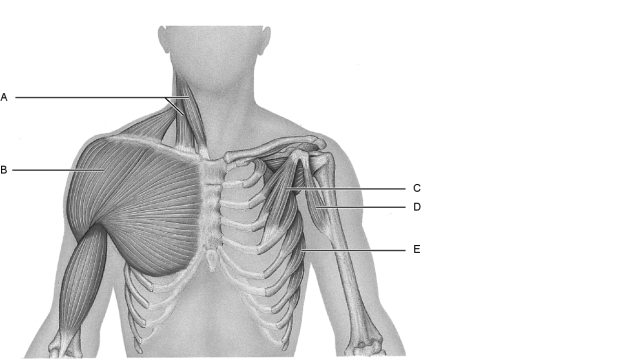 Figure 10.2Using Figure 10.2, match the following:
Figure 10.2Using Figure 10.2, match the following:A woman mentions to her friend that another person on the beach has "great abs." What is she talking about?

Unlock Deck
Unlock for access to all 109 flashcards in this deck.
Unlock Deck
k this deck
42
How does an antagonist differ from a prime mover? How is it the same?

Unlock Deck
Unlock for access to all 109 flashcards in this deck.
Unlock Deck
k this deck
43
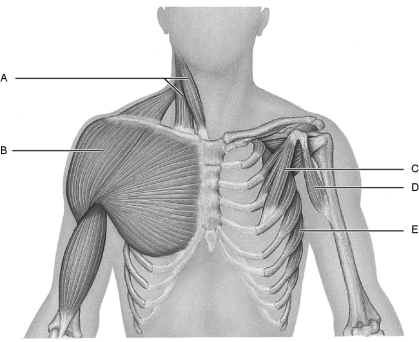 Figure 10.2Using Figure 10.2, match the following:
Figure 10.2Using Figure 10.2, match the following:Pectoralis minor.

Unlock Deck
Unlock for access to all 109 flashcards in this deck.
Unlock Deck
k this deck
44
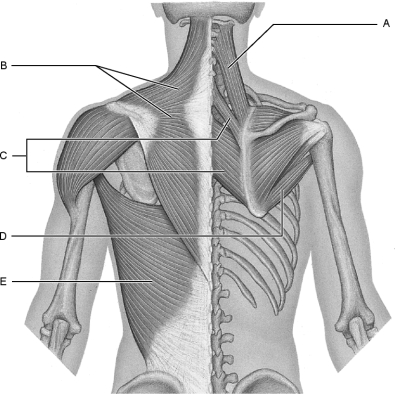 Figure 10.3Using Figure 10.3, match the following:
Figure 10.3Using Figure 10.3, match the following:Rotates scapula.

Unlock Deck
Unlock for access to all 109 flashcards in this deck.
Unlock Deck
k this deck
45
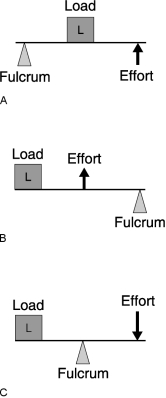 Figure 10.1Using Figure 10.1, match the following:
Figure 10.1Using Figure 10.1, match the following:Atlanto- occipital joint.

Unlock Deck
Unlock for access to all 109 flashcards in this deck.
Unlock Deck
k this deck
46
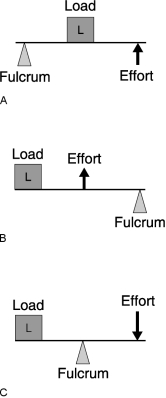 Figure 10.1Using Figure 10.1, match the following:
Figure 10.1Using Figure 10.1, match the following:First- class lever.

Unlock Deck
Unlock for access to all 109 flashcards in this deck.
Unlock Deck
k this deck
47
Muscles that act as synergists seem to have valuable functions, especially in stabilizing joints. Briefly explain their function.

Unlock Deck
Unlock for access to all 109 flashcards in this deck.
Unlock Deck
k this deck
48
 Figure 10.1Using Figure 10.1, match the following:
Figure 10.1Using Figure 10.1, match the following:The extends the great toe.

Unlock Deck
Unlock for access to all 109 flashcards in this deck.
Unlock Deck
k this deck
49
 Figure 10.2Using Figure 10.2, match the following:
Figure 10.2Using Figure 10.2, match the following:Serratus anterior.

Unlock Deck
Unlock for access to all 109 flashcards in this deck.
Unlock Deck
k this deck
50
Tennis players often complain about pain in the arm (forearm) that swings the racquet. What muscle is usually strained under these conditions?
A) the brachioradialis
B) the anconeus
C) the triceps brachii
D) the flexor digitorum profundus
A) the brachioradialis
B) the anconeus
C) the triceps brachii
D) the flexor digitorum profundus

Unlock Deck
Unlock for access to all 109 flashcards in this deck.
Unlock Deck
k this deck
51
A wide receiver for a college football team pulled a hamstring muscle. What muscles could be affected and what would the effect be?

Unlock Deck
Unlock for access to all 109 flashcards in this deck.
Unlock Deck
k this deck
52
 Figure 10.2Using Figure 10.2, match the following:
Figure 10.2Using Figure 10.2, match the following:The quadriceps femoris is composed of three "vastus" muscles and the .

Unlock Deck
Unlock for access to all 109 flashcards in this deck.
Unlock Deck
k this deck
53
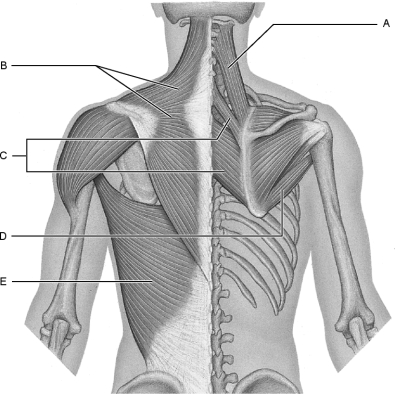 Figure 10.3Using Figure 10.3, match the following:
Figure 10.3Using Figure 10.3, match the following:How can a lever system work at a disadvantage but still be of use to us?

Unlock Deck
Unlock for access to all 109 flashcards in this deck.
Unlock Deck
k this deck
54
The helps keep food between the grinding surfaces of the teeth during chewing.

Unlock Deck
Unlock for access to all 109 flashcards in this deck.
Unlock Deck
k this deck
55
What are the components of a lever system? Describe the role of each component.

Unlock Deck
Unlock for access to all 109 flashcards in this deck.
Unlock Deck
k this deck
56
is a powerful forearm extensor.

Unlock Deck
Unlock for access to all 109 flashcards in this deck.
Unlock Deck
k this deck
57
The runs deep to the external oblique.

Unlock Deck
Unlock for access to all 109 flashcards in this deck.
Unlock Deck
k this deck
58
The abnormal protrusion of the small intestine through a weak point in the muscle of the abdominal wall is called a .

Unlock Deck
Unlock for access to all 109 flashcards in this deck.
Unlock Deck
k this deck
59
The tightens the neck and draws the corners of the mouth downward as in expressing horror.

Unlock Deck
Unlock for access to all 109 flashcards in this deck.
Unlock Deck
k this deck
60
 Figure 10.3Using Figure 10.3, match the following:
Figure 10.3Using Figure 10.3, match the following:Teres major muscle.

Unlock Deck
Unlock for access to all 109 flashcards in this deck.
Unlock Deck
k this deck
61
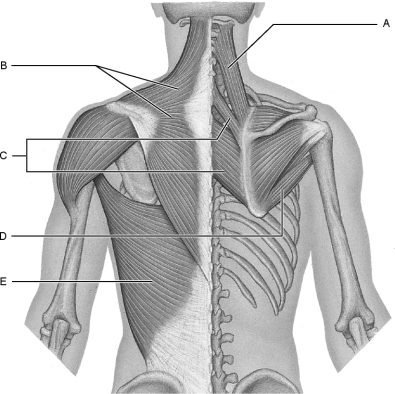 Figure 10.3Using Figure 10.3, match the following:
Figure 10.3Using Figure 10.3, match the following:Retract scapula.

Unlock Deck
Unlock for access to all 109 flashcards in this deck.
Unlock Deck
k this deck
62
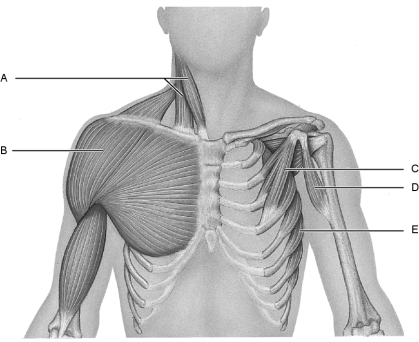 Figure 10.2Using Figure 10.2, match the following:
Figure 10.2Using Figure 10.2, match the following:Coracobrachialis.

Unlock Deck
Unlock for access to all 109 flashcards in this deck.
Unlock Deck
k this deck
63
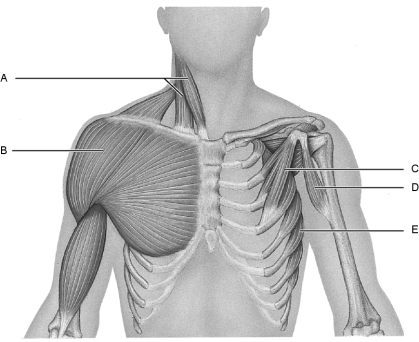 Figure 10.2Using Figure 10.2, match the following:
Figure 10.2Using Figure 10.2, match the following:Sternocleidomastoid

Unlock Deck
Unlock for access to all 109 flashcards in this deck.
Unlock Deck
k this deck
64
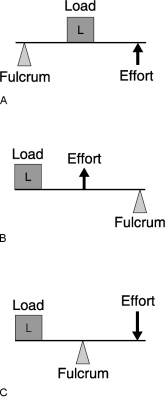 Figure 10.1Using Figure 10.1, match the following:
Figure 10.1Using Figure 10.1, match the following:Humerus-ulna joint.

Unlock Deck
Unlock for access to all 109 flashcards in this deck.
Unlock Deck
k this deck
65
 Figure 10.3Using Figure 10.3, match the following:
Figure 10.3Using Figure 10.3, match the following:What muscles are involved in biting and chewing an apple?

Unlock Deck
Unlock for access to all 109 flashcards in this deck.
Unlock Deck
k this deck
66
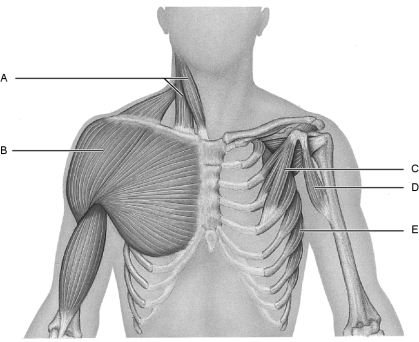 Figure 10.2Using Figure 10.2, match the following:
Figure 10.2Using Figure 10.2, match the following:Deltoid

Unlock Deck
Unlock for access to all 109 flashcards in this deck.
Unlock Deck
k this deck
67
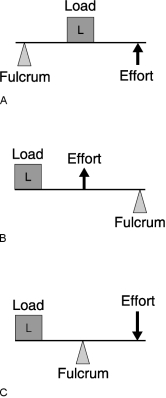 Figure 10.1Using Figure 10.1, match the following:
Figure 10.1Using Figure 10.1, match the following:Bodybuilders are known for their "great quads." Describe the quadriceps muscles.

Unlock Deck
Unlock for access to all 109 flashcards in this deck.
Unlock Deck
k this deck
68
 Figure 10.1Using Figure 10.1, match the following:
Figure 10.1Using Figure 10.1, match the following:Tibia-calcaneus joint.

Unlock Deck
Unlock for access to all 109 flashcards in this deck.
Unlock Deck
k this deck
69
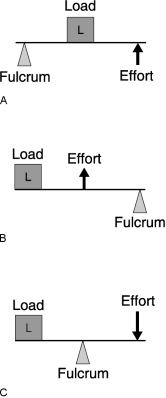 Figure 10.1Using Figure 10.1, match the following:
Figure 10.1Using Figure 10.1, match the following:The is known as the boxer muscle.

Unlock Deck
Unlock for access to all 109 flashcards in this deck.
Unlock Deck
k this deck
70
 Figure 10.1Using Figure 10.1, match the following:
Figure 10.1Using Figure 10.1, match the following:The action of lifting a shovel of snow.

Unlock Deck
Unlock for access to all 109 flashcards in this deck.
Unlock Deck
k this deck
71
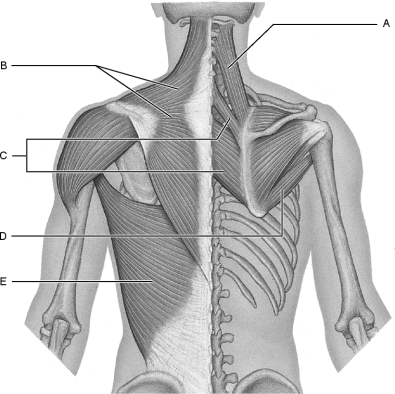 Figure 10.3Using Figure 10.3, match the following:
Figure 10.3Using Figure 10.3, match the following:Levator scapulae.

Unlock Deck
Unlock for access to all 109 flashcards in this deck.
Unlock Deck
k this deck
72
The is the main chewing muscle.

Unlock Deck
Unlock for access to all 109 flashcards in this deck.
Unlock Deck
k this deck
73
Muscles connecting to the hyoid bone are important for swallowing and speech.

Unlock Deck
Unlock for access to all 109 flashcards in this deck.
Unlock Deck
k this deck
74
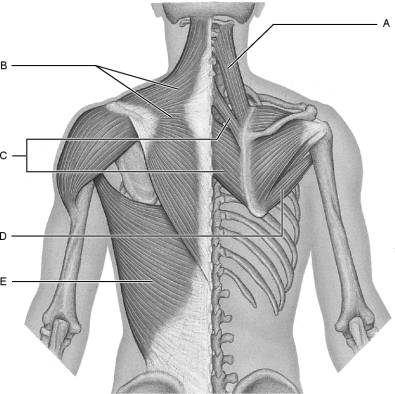 Figure 10.3Using Figure 10.3, match the following:
Figure 10.3Using Figure 10.3, match the following:Trapezius muscle.

Unlock Deck
Unlock for access to all 109 flashcards in this deck.
Unlock Deck
k this deck
75
The is a synergist of the latissimus dorsi; it extends, medially rotates, and adducts the humerus.

Unlock Deck
Unlock for access to all 109 flashcards in this deck.
Unlock Deck
k this deck
76
 Figure 10.3Using Figure 10.3, match the following:
Figure 10.3Using Figure 10.3, match the following:An elderly woman, with extensive osteoarthritis of her left hip joint, entered the hospital to have a total hip joint replacement (prosthesis implantation). After surgery, her left hip had to be maintained in abduction to prevent dislocation of the prosthesis while healing was occurring. Physical therapy was prescribed to prevent atrophy of the adductor muscles during the interval of disuse. Name the adductor muscles and describe the action of each that was being prevented while the hip was adducted.

Unlock Deck
Unlock for access to all 109 flashcards in this deck.
Unlock Deck
k this deck
77
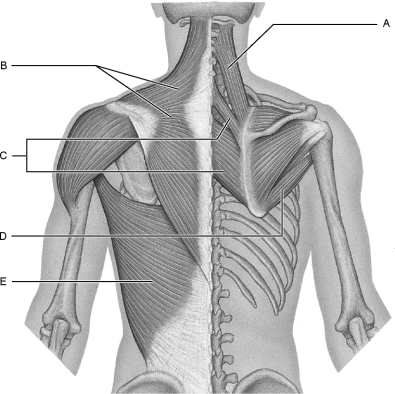 Figure 10.3Using Figure 10.3, match the following:
Figure 10.3Using Figure 10.3, match the following:The latissimus dorsi.

Unlock Deck
Unlock for access to all 109 flashcards in this deck.
Unlock Deck
k this deck
78
 Figure 10.1Using Figure 10.1, match the following:
Figure 10.1Using Figure 10.1, match the following:Which muscle is used for normal breathing and which additional muscles are used when performing strenuous exercise?

Unlock Deck
Unlock for access to all 109 flashcards in this deck.
Unlock Deck
k this deck
79
 Figure 10.1Using Figure 10.1, match the following:
Figure 10.1Using Figure 10.1, match the following:Second- class lever.

Unlock Deck
Unlock for access to all 109 flashcards in this deck.
Unlock Deck
k this deck
80
Damage to the ischiocavernosus muscle would have what effect?

Unlock Deck
Unlock for access to all 109 flashcards in this deck.
Unlock Deck
k this deck


